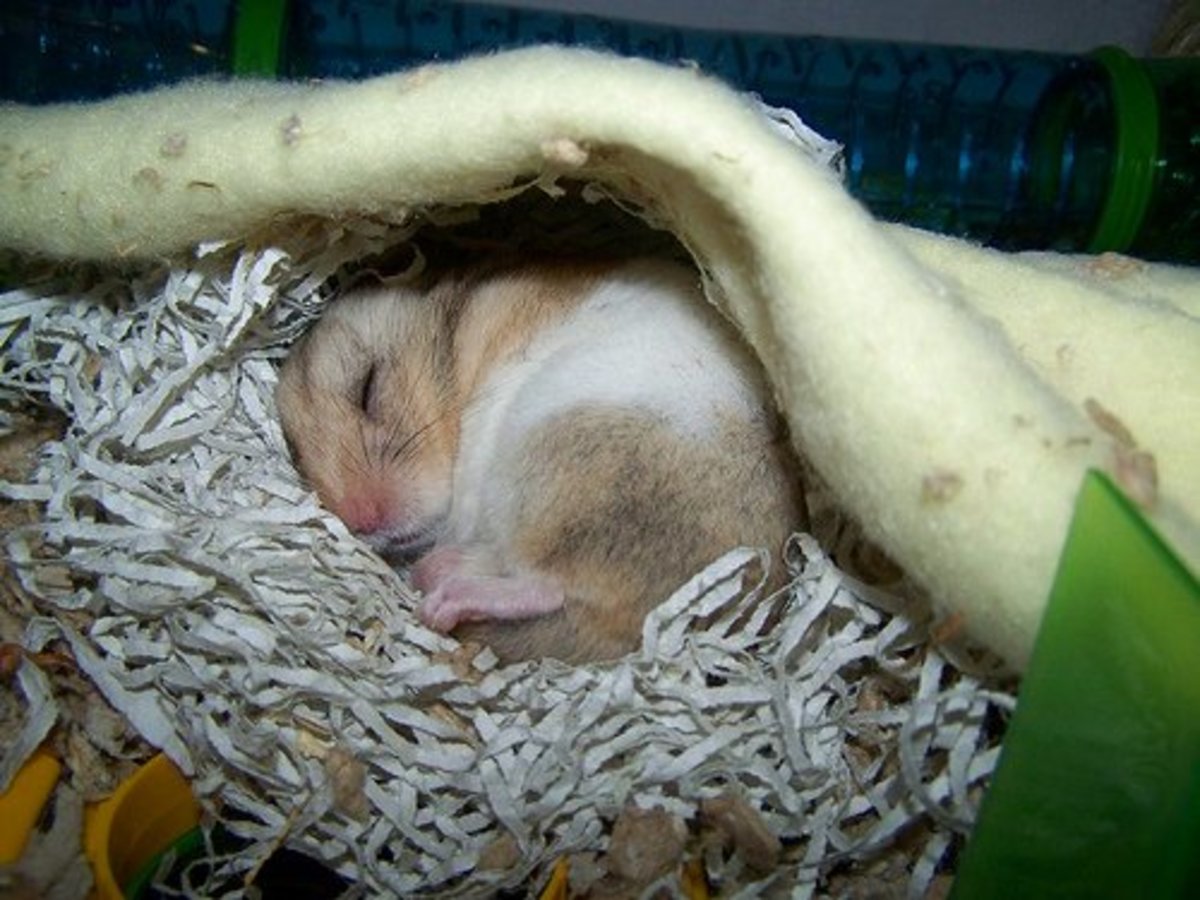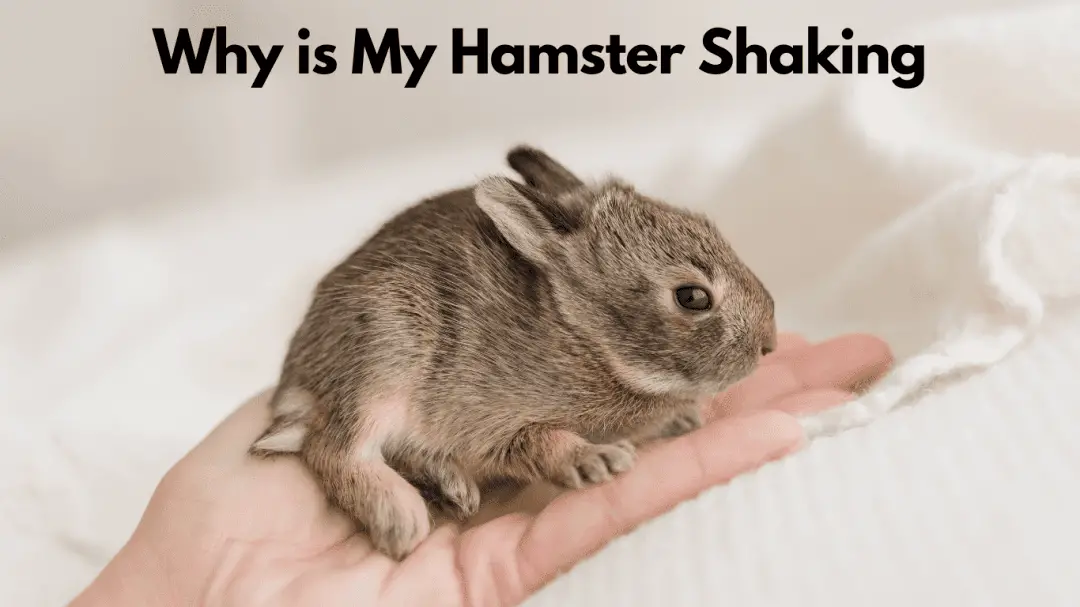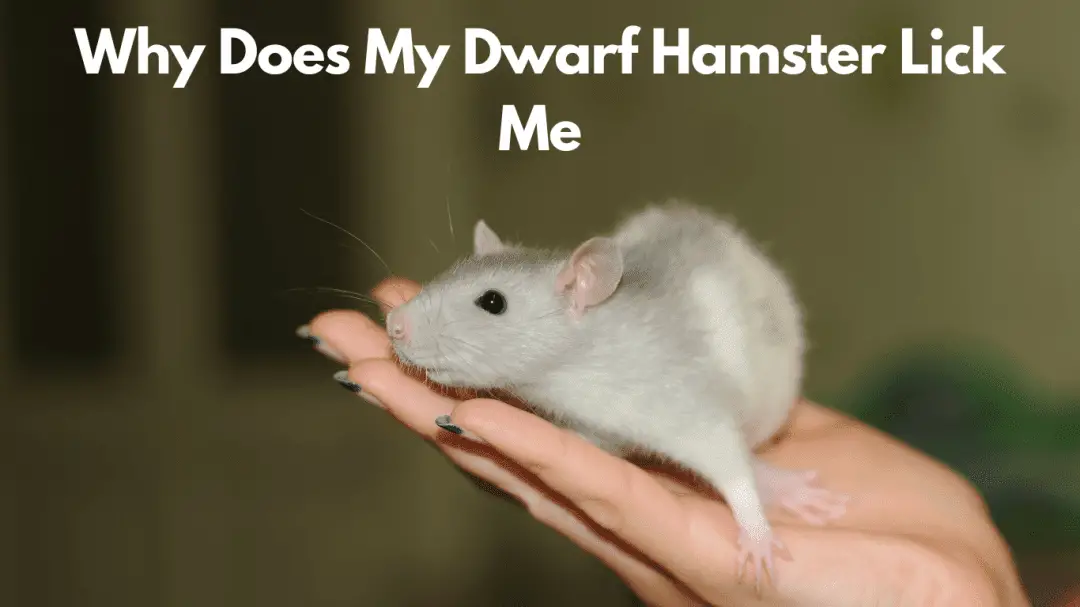If you’ve ever wondered why your hamster sneezes, you’re not alone. Many people think that their hamsters are sick when they sneeze, but in most cases, it’s nothing to worry about. There are a few reasons why your hamster might sneeze, and we’ll go over them all here.
There are a few reasons why your hamster may be sneezing. One possibility is that they have a cold or respiratory infection. This is especially common in winter when the air is drier and colder.
If you notice your hamster sneezing more than usual, it’s a good idea to take them to the vet for a check-up.
Another reason for sneezing could be allergies. Just like humans, hamsters can suffer from allergies to dust, pollen or other environmental irritants.
If you think this might be the case, try changing their bedding to something hypoallergenic and see if that makes a difference.
Finally, sometimes hamsters just sneeze because they’re excited or happy! So if your hamster gives a little sneeze now and then, there’s probably nothing to worry about.

Credit: pethelpful.com
Should I Be Worried If My Hamster Sneezes?
If you notice your hamster sneezing, it’s important to take note of other symptoms he or she is experiencing. Sudden onset sneezing in a healthy hamster is usually nothing to worry about and may be caused by dust or other irritants in the air. However, if your hamster is also displaying any of the following symptoms, it’s best to bring him or her to the vet for an examination:
– runny nose or discharge from the eyes
– difficulty breathing
– wheezing
– loss of appetite
– lethargy
These could all be signs of a respiratory infection, which is common in hamsters and can be serious if left untreated.
If your hamster is showing any of these more severe symptoms along with sneezing, don’t hesitate to contact your veterinarian for advice.
Why is My Hamster Making Noises?
There are a few reasons why your hamster might be making noises. It could be that they’re trying to get your attention, or they might be in pain. If your hamster is usually quiet and suddenly starts making noise, it’s worth taking them to the vet to check for any health problems.
Your hamster might make noises when they’re hungry or thirsty, so make sure their food and water bowls are always full. Some hamsters also like to squeak when they’re playing, so if you think this is the case then there’s no need to worry. However, if your hamster is making loud noises that seem distressed, then it’s best to take them to see a vet.
What are Signs of Stress in a Hamster?
If you think your hamster may be stressed, there are some signs to look for. Your hamster may be pacing or running more than usual, chewing on cage bars, or losing fur. Other sign of stress in hamsters include changes in eating and drinking habits, aggression, and toileting outside the litter box.
If you notice any of these changes in your hamster’s behavior, it’s important to take steps to reduce their stress levels.
Do Hamsters Get Colds?
Yes, hamsters can get colds. Just like any other small mammal, their bodies are not able to regulate their temperature as well as larger animals. This means that they are more susceptible to getting colds when the temperature drops.
If you think your hamster may have a cold, take it to the vet for an examination and treatment.
Hamster Sneeze Death
When a hamster sneezes, it’s actually quite a scary event. Hamsters are very small animals, and their bodies are not equipped to handle the force of a sneeze. In fact, hamsters can actually die from Sneezing!
The reason why is because when a hamster sneezes, its body is thrown into such sudden shock that its heart can actually stop beating. While this may seem like an unlikely event, it does happen on occasion. If you have a pet hamster, it’s important to be aware of the potential danger and take steps to prevent your furry friend from suffering a fatal sneeze.
There are several things that can cause a hamster to sneeze. Dust and other airborne particles are the most common culprits, but cold temperatures can also lead to Sneezing in hamsters. If you suspect that your hamster is about to sneeze, quickly move him or her away from any dusty areas and into a warm room.
You might also want to consider investing in an air filter for your home if your pet is particularly prone to Sneezing fits.
If your hamster does happen to sneeze, keep an eye on him or her for the next few hours. If the Sneezing was severe enough, there is a chance that your pet could go into cardiac arrest and die.
However, this is relatively rare and usually only happens in cases where the Sneezing was caused by dust or other irritants.
Is My Hamster Sneezing Or Squeaking
If you’ve ever wondered whether your hamster is sneezing or squeaking, you’re not alone. It can be difficult to tell the difference between the two sounds, especially if you’re new to owning a hamster. Here’s a quick guide to help you determine whether your hamster is sneezing or squeaking:
Sneezing: A hamster that is sneezing will make a short, sharp sound. This is typically caused by an irritant in the air, such as dust or pollen. If your hamster is sneezing frequently, it may be time to clean its cage and provide some relief from the irritant.
Squeaking: A hamster that is squeaking will make a high-pitched, continuous sound. This usually indicates excitement or fear. For example, if your hamster sees another animal outside its cage, it may start squeaking in excitement or fear.
If your hamster is frequently squeaking, it may be time to provide more enrichment in its cage, such as hiding places and toys.
Hamster Sneezing But Acting Normal
If your hamster is sneezing but acting normal, there’s no need to worry! Sneezing is a perfectly normal behavior for hamsters, and it doesn’t necessarily mean that they’re sick. However, if your hamster is sneezing more than usual, or if they seem to be in any discomfort, it’s always best to consult with a veterinarian.
What Do Hamster Sneeze Sound Like
If you’ve ever wondered what a hamster sneeze sounds like, wonder no more! These small, furry creatures make a sound that’s similar to a human sneeze, albeit much quieter. Hamsters sneeze for the same reasons that we do- to expel dust, debris or other irritants from their noses.
So next time your hamster lets out a little “achoo!”, know that they’re just trying to keep their nose clean and healthy!
Conclusion
If you’ve ever wondered why your hamster sneezes, you’re not alone. Hamsters are prone to respiratory infections, which can cause them to sneeze frequently. However, there are a number of other reasons why your hamster may be sneezing more than usual.
Here are some of the most common reasons for hamster sneezing:
1. Respiratory Infections: As mentioned, respiratory infections are one of the most common causes of Sneezing in hamsters. These infections can be caused by a number of different viruses or bacteria, and they often lead to a runny nose and watery eyes in addition to Sneezing.
If you suspect that your hamster has a respiratory infection, take them to the vet as soon as possible for treatment.
2. Allergies: Just like humans, hamsters can suffer from allergies that cause them to Sneeze frequently. Common allergens include dust, pollen, and even certain types of food.
If you think your hamster’s Sneezing might be caused by an allergy, try eliminating potential allergens from their environment and see if their symptoms improve.
3. Foreign Objects: Another common cause of Sneezing in hamsters is the presence of foreign objects in their nose or throat. This could be anything from pieces of bedding material to bits of food that haven’t been properly chewed before being swallowed.
If you think your hamster has something stuck in their airway, take them to the vet so it can be removed safely.
4. Pregnancy: Believe it or not, pregnancy is another potential cause of Sneezing in female hamsters (although this is relatively rare). Hormonal changes during pregnancy can sometimes trigger bouts of Sneezing, although this typically goes away on its own once the baby is born.
- Diy Delights: Creative Ideas For Hamster Toys And Accessories - April 13, 2024
- Creating A Healthy Habitat: Essential Tips For A Happy Hamster Home - April 13, 2024
- Enrichment Galore: Boosting Your Hamster’s Happiness With Emojis - April 13, 2024


